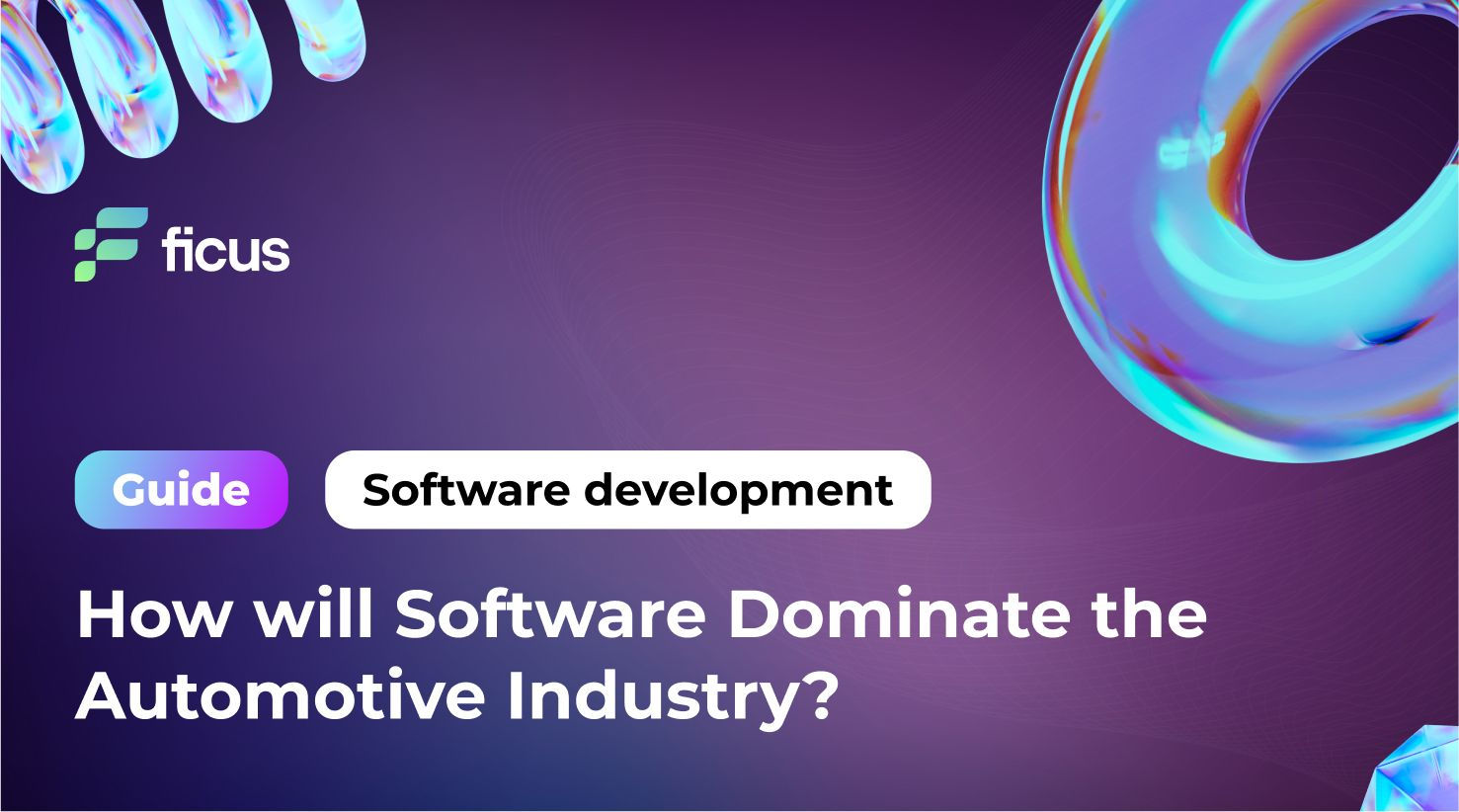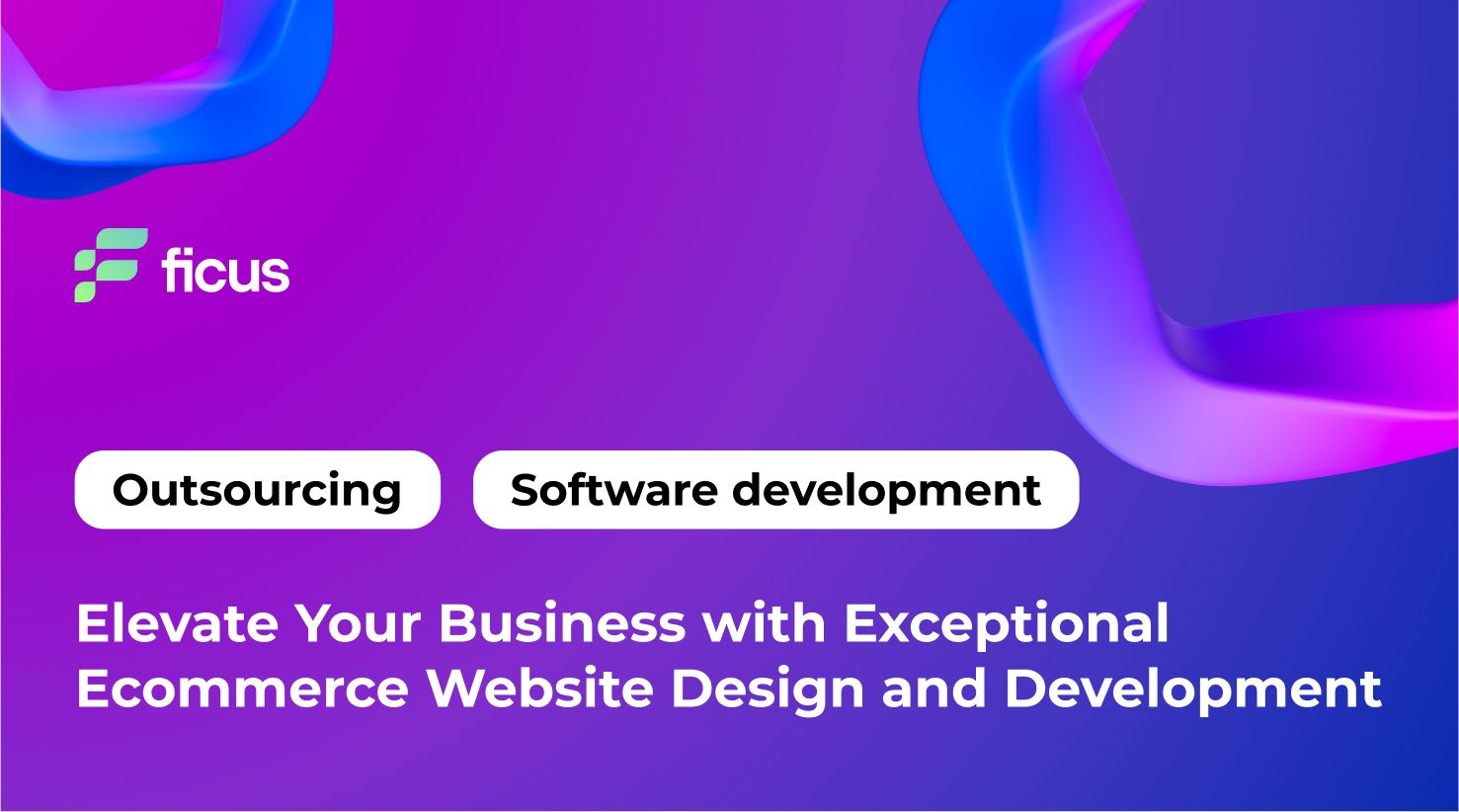The automotive industry is undergoing a profound transformation, driven by the integration of advanced software technologies. As vehicles become more connected, autonomous, and intelligent, software in automotive is at the heart of this revolution. From enhancing vehicle performance to redefining the driving experience, software is increasingly shaping the future of the automotive industry. In this article, we’ll explore the significance of software in automotive, its role in modern vehicles, and the key trends that are driving its widespread adoption.
- Technology transformations include AI, big data, electric cars, and connectivity.
- The software will power vehicles, enabling connected cars and autonomous driving.
- Mobility as a Service (MaaS) is reshaping the automotive industry.
Overview of the Software in Automotive Revolution
The software in the automotive revolution marks a significant shift in how vehicles are designed, produced, and operated. Traditionally, the automotive industry was dominated by mechanical engineering and hardware-driven innovation. However, with the rise of digital technologies, software has become a critical component in the development of modern vehicles. This shift is not only transforming the vehicles themselves but also the entire automotive ecosystem, including manufacturing processes, supply chains, and customer experiences.
Software in the automotive industry is now a multi-billion-dollar sector, with software playing a central role in everything from vehicle control systems and infotainment to advanced driver-assistance systems (ADAS) and autonomous driving technologies. As a result, the demand for innovative software solutions in the automotive industry has never been higher, and companies are investing heavily in the development of new and sophisticated software in automotive.
Importance of Software in the Future of the Automotive Industry
As we look toward the future of the automotive industry, it’s clear that software will play an increasingly vital role. The integration of software in automotive is essential for meeting the evolving expectations of consumers, who demand more connectivity, safety, and convenience from their vehicles. Additionally, regulatory requirements and environmental concerns are pushing the industry toward more sustainable and efficient solutions, many of which are enabled by software.
The future of the automotive industry will be defined by its ability to leverage software to deliver exceptional products and services. From the rise of electric vehicles (EVs) to the development of fully autonomous cars, software is the key to unlocking the potential of these innovations. Moreover, software-driven advancements in areas such as AI, machine learning, and data integration will continue to shape the industry, driving new business models and creating growth opportunities.
What is Automotive Software?
Understanding what automotive software is and its key components is crucial for appreciating its impact on the automotive industry. In this section, we’ll define automotive software, explore its core elements, and examine its role in modern vehicles.
Key Components
This software can range from basic control systems that manage engine performance to complex algorithms that enable autonomous driving. Key components of automotive software include:
- Embedded Systems: These are specialized computing systems integrated into vehicle hardware, responsible for controlling various functions such as engine management, braking, and transmission.
- Infotainment Systems: These systems provide entertainment, navigation, and communication features to enhance the driving experience. Infotainment software often integrates with mobile devices and cloud services to offer real-time information and connectivity.
- Advanced Driver-Assistance Systems (ADAS): ADAS software includes features like adaptive cruise control, lane-keeping assistance, and collision avoidance. These systems rely on sensors, cameras, and software algorithms to improve vehicle safety and performance.
- Autonomous Driving Software: This is one of the most advanced forms of automotive software, enabling vehicles to drive themselves with minimal or no human intervention. Autonomous driving software uses AI, machine learning, and sensor data to make real-time driving decisions.
- Vehicle-to-Everything (V2X) Communication: V2X software allows vehicles to communicate with each other and with infrastructure, enhancing safety and traffic management through real-time data exchange.
The Role of Software in Modern Vehicles
In modern vehicles, software in the automotive industry plays a critical role in enhancing performance, safety, and user experience. Software systems control nearly every aspect of a vehicle’s operation, from the engine and transmission to braking and steering. With the growing complexity of vehicles, the importance of reliable and efficient software has never been greater.
One of the most significant roles of automotive software is in enabling connectivity. Through software, vehicles can connect to the internet, other vehicles, and infrastructure, creating a seamless flow of information that enhances driving safety, efficiency, and convenience. This connectivity is also paving the way for new services and business models, such as mobility-as-a-service (MaaS) and connected car ecosystems.
Additionally, the shift toward electric vehicles (EVs) has increased the reliance on software to manage battery performance, energy efficiency, and charging processes. Software is also critical for ensuring that EVs meet regulatory standards and deliver a reliable and enjoyable driving experience.
Overall, the role of software in modern vehicles extends far beyond basic control functions. It is a driving force behind the industry’s innovation and evolution, enabling new features, improving safety, and enhancing the overall driving experience.

Key Trends Driving the Adoption of Automotive Software
The adoption of automotive software is being driven by several key trends that are reshaping the industry. These trends are not only influencing how vehicles are designed and produced but also how they are used by consumers.
AI and Machine Learning in Automotive Applications
AI and machine learning are at the forefront of the automotive software revolution, transforming how vehicles operate and interact with their environment. These technologies enable advanced features such as predictive maintenance, personalized infotainment, and autonomous driving.
Key Applications of AI and Machine Learning:
- Autonomous Driving: AI algorithms process vast amounts of data from sensors, cameras, and other sources to make real-time driving decisions. Machine learning models continuously improve the accuracy and reliability of these systems, bringing us closer to fully autonomous vehicles.
- Predictive Maintenance: AI-driven predictive maintenance systems monitor vehicle components and predict when maintenance is needed, reducing downtime and preventing costly repairs.
- Personalized User Experience: AI is used to personalize the driving experience by adjusting settings such as seat position, climate control, and infotainment preferences based on the driver’s habits and preferences.
Connectivity and IoT in Vehicles
The integration of the Internet of Things (IoT) in vehicles is revolutionizing the automotive software industry by enabling new levels of connectivity and data exchange. IoT technology allows vehicles to connect to the internet, other vehicles, and infrastructure, creating a network of connected devices that enhance safety, efficiency, and user experience.
Key Aspects of IoT in Automotive:
- Vehicle-to-Vehicle (V2V) Communication: V2V technology enables vehicles to share information about their speed, position, and direction, helping to prevent collisions and improve traffic flow.
- Vehicle-to-Infrastructure (V2I) Communication: V2I communication allows vehicles to interact with traffic lights, road signs, and other infrastructure, improving traffic management and reducing congestion.
- Connected Car Ecosystems: IoT technology enables the creation of connected car ecosystems, where vehicles are integrated with services such as navigation, entertainment, and remote diagnostics. This connectivity enhances the overall driving experience and opens up new revenue streams for automakers.
The Rise of Self-Driving and Autonomous Technologies
One of the most significant trends in the automotive software industry is the rise of self-driving and autonomous technologies. These technologies are transforming the future of the automotive industry, with the potential to redefine transportation as we know it.
Key Developments in Autonomous Technologies:
- Levels of Autonomy: Autonomous vehicles are categorized into levels based on their ability to operate without human intervention. While Level 2 and Level 3 autonomous vehicles are already on the market, the industry is rapidly advancing toward fully autonomous Level 4 and Level 5 vehicles.
- Safety and Regulation: The development of autonomous vehicles is closely tied to safety and regulatory standards. Software plays a crucial role in ensuring that autonomous systems meet these standards and provide a safe and reliable driving experience.
- Impact on Mobility: The rise of autonomous vehicles is expected to have a profound impact on mobility, leading to new models such as shared autonomous vehicles and autonomous ride-hailing services. These developments will reshape urban transportation and reduce the need for personal car ownership.
The Impact of Software on the Automotive Industry
The integration of software into the automotive industry has led to a seismic shift in how vehicles are designed, developed, and experienced by consumers. As the industry evolves, software has become a central element, driving innovation and transforming traditional processes. Below, we explore the key ways in which automotive software is impacting the industry.
Transformation of Vehicle Design and Development
The advent of automotive software has revolutionized vehicle design and development processes. Traditionally, automotive design was heavily reliant on mechanical engineering, with a focus on physical components and hardware. However, the increasing integration of software has introduced new possibilities and efficiencies in the design phase.
- Digital Prototyping: Software enables digital prototyping, allowing designers and engineers to create and test virtual models of vehicles before they are physically built. This reduces development time and costs while enabling more innovative designs.
- Simulation and Testing: Advanced simulation software allows for the testing of various scenarios, such as crash tests or aerodynamic performance, in a virtual environment. This improves safety and performance outcomes without the need for extensive physical trials.
- Collaborative Development: Software tools facilitate collaborative development among global teams, enabling real-time collaboration and integration across different aspects of vehicle design, from aesthetics to functionality.
Enhanced Customer Experience Through Digital Solutions
Software is also playing a crucial role in enhancing the customer experience within the automotive industry. Modern vehicles are equipped with a range of digital solutions that improve convenience, safety, and entertainment, making the driving experience more enjoyable and tailored to individual preferences.
- Infotainment Systems: In-car infotainment systems powered by automotive software offer drivers and passengers access to navigation, music, communication, and other digital services. These systems often integrate with smartphones and cloud services, providing a seamless digital experience on the go.
- Personalization: Software allows vehicles to be personalized according to the driver’s preferences, from seat positions to climate control settings. AI-driven systems can learn and adapt to user behaviors, offering a more customized and intuitive experience.
- Customer Interaction: Beyond the vehicle itself, software is transforming how automakers interact with their customers. Digital platforms and apps enable remote vehicle diagnostics, over-the-air updates, and even direct communication with customer support, enhancing convenience and satisfaction.
The Shift from Hardware to Software-Centric Models
The automotive industry is undergoing a fundamental shift from hardware-centric models to software-centric ones. As vehicles become increasingly complex and connected, software is taking center stage in defining vehicle capabilities and performance.
- Software-Defined Vehicles (SDVs): The concept of Software-Defined Vehicles (SDVs) is gaining traction, where the majority of a vehicle’s functionality is controlled by software rather than hardware. This allows for continuous updates and improvements throughout the vehicle’s lifecycle, much like how smartphones receive regular software updates.
- Modularity and Flexibility: Software-centric models enable greater modularity and flexibility in vehicle design. For example, new features can be added or upgraded via software updates, reducing the need for physical modifications and extending the vehicle’s useful life.
- Business Model Evolution: The shift to software-centric models is also driving new business models, such as subscription services for software features, on-demand services, and enhanced post-sale customer engagement through software upgrades and services.
Looking for developers for your Automotive project?
Contact usChallenges in Automotive Software Development
While the integration of automotive software offers numerous benefits, it also presents several challenges that must be addressed to ensure the successful development and deployment of software in vehicles. Below, we discuss some of the key challenges facing the automotive software industry.
Security Concerns and Data Management
As vehicles become more connected, the importance of cybersecurity in the automotive software industry cannot be overstated. The vast amounts of data generated and exchanged by modern vehicles present significant security challenges.
- Cybersecurity Threats: Connected vehicles are susceptible to cybersecurity threats, such as hacking, data breaches, and unauthorized access. Ensuring robust cybersecurity measures are in place is critical to protecting both vehicle systems and user data.
- Data Privacy: With vehicles collecting and processing vast amounts of personal data, including location, driving habits, and more, data privacy becomes a significant concern. Compliance with data protection regulations, such as GDPR, is essential for maintaining consumer trust.
- Secure Software Development: Addressing security concerns requires a focus on secure software development practices, including rigorous testing, vulnerability assessments, and ongoing monitoring to detect and mitigate potential threats.
Integration with Existing Automotive Systems
Integrating new software solutions with existing automotive systems presents another significant challenge. Vehicles are complex machines with numerous interdependent systems, and ensuring seamless integration between new software and these systems is crucial for maintaining functionality and safety.
- Compatibility Issues: New software must be compatible with existing hardware and legacy systems, which can be a complex and time-consuming process. Ensuring compatibility requires careful planning, extensive testing, and sometimes, modifications to existing systems.
- System Interoperability: Modern vehicles often include multiple software systems from different suppliers. Ensuring these systems can work together seamlessly is critical to delivering a cohesive and reliable user experience.
- Updates and Maintenance: Regular software updates are necessary to add new features, fix bugs, and improve security. However, managing these updates across a fleet of vehicles, particularly when dealing with different models and generations, can be challenging.
Future Prospects: Software-Defined Vehicles
As the automotive industry continues to evolve, Software-Defined Vehicles (SDVs) are emerging as a transformative trend that will redefine the future of transportation. The concept of SDVs highlights the growing importance of software in determining the functionality, performance, and adaptability of vehicles. In this section, we’ll explore the future of the automobile industry, emerging trends in automotive software, and predictions for the next decade.
The Future of the Automobile Industry
The future of the automobile industry is increasingly being shaped by the integration of advanced software systems. As vehicles become more connected, autonomous, and intelligent, the role of automotive software will continue to expand. Software will not only control traditional vehicle functions but also enable new capabilities that were once unimaginable.
- Autonomous Vehicles: One of the most significant developments in the future of the automotive industry is the rise of autonomous vehicles. Software will play a crucial role in enabling these vehicles to navigate complex environments, make real-time decisions, and ensure passenger safety. As autonomous technology matures, we can expect to see widespread adoption of self-driving cars, particularly in urban areas and for commercial purposes such as delivery and ride-sharing services.
- Electric Vehicles (EVs): The shift toward electric vehicles is another major trend that will define the future of the automotive industry. Software is essential for managing battery performance, optimizing energy consumption, and providing drivers with real-time data on charging and range. As EV adoption grows, software will be key to overcoming challenges related to infrastructure, range anxiety, and vehicle efficiency.
- Connected Car Ecosystems: The future of the car industry will also see the expansion of connected car ecosystems, where vehicles are integrated with digital services and platforms. These ecosystems will offer a range of services, from personalized infotainment to remote diagnostics and over-the-air updates. This connectivity will create new business models and revenue streams for automakers, while also enhancing the driving experience.
Emerging Trends in Software for the Automotive Industry
Several emerging trends are set to shape the future of automotive software and drive innovation in the industry. These trends highlight the increasing role of software in delivering new features, improving safety, and meeting consumer expectations.
- AI and Machine Learning: AI and machine learning are becoming integral to automotive software development, enabling more intelligent and adaptive systems. From predictive maintenance to personalized driver assistance, AI-driven software will continue to enhance vehicle capabilities and user experiences.
- Blockchain Technology: Blockchain is emerging as a potential solution for enhancing security, transparency, and data management in the automotive industry. It can be used for secure vehicle-to-vehicle communication, supply chain management, and even digital identity verification for autonomous vehicles.
- Augmented Reality (AR): AR is poised to revolutionize the in-car experience by providing drivers with real-time information overlaid on the windshield or other displays. This technology can enhance navigation, safety, and even entertainment by offering an immersive and interactive experience.
- Cybersecurity: As vehicles become more connected, the importance of cybersecurity will continue to grow. Future automotive software will need to incorporate advanced security measures to protect against increasingly sophisticated cyber threats. This includes not only protecting the vehicle itself but also securing the vast amounts of data generated by connected cars.
Final Thoughts
The role of automotive software in shaping the future of the automotive industry is undeniable. From transforming vehicle design and enhancing customer experiences to driving the adoption of autonomous and electric vehicles, software is at the core of the industry’s evolution. As we move toward a future dominated by Software-Defined Vehicles, the integration of advanced software systems will continue to be a key driver of innovation and growth.
The evolution of automotive technology is being propelled by the rapid advancement of automotive software. As vehicles become more connected, intelligent, and autonomous, software will play an increasingly central role in defining their capabilities and performance. The future of the automotive industry will be shaped by the ability to leverage software to meet the demands of consumers, improve safety, and create new business opportunities. For businesses and consumers alike, the continued evolution of automotive technology promises a future where vehicles are more than just a means of transportation—they are intelligent, connected platforms that enhance our lives in ways we are only beginning to imagine.
At Ficus Technologies, we recognize the crucial role of software in the evolving automotive landscape. We specialize in developing tailored solutions for the sector, from optimizing garage management with digital tools to advancing connected car technologies and autonomous driving solutions. Ficus Technologies is your key partner in navigating the automotive industry’s transformation. For more information or to discuss your needs, visit our contact page.
AI is revolutionizing automotive software by enabling advanced driver assistance systems (ADAS), autonomous driving capabilities, and predictive maintenance. AI algorithms analyze data from sensors and cameras to assist with tasks like lane-keeping, adaptive cruise control, and collision avoidance. It also enhances in-car voice recognition, and personalized user experiences, and optimizes vehicle performance.
The Software improves the customer experience by offering features such as intuitive infotainment systems, seamless smartphone integration, and advanced navigation with real-time traffic updates. It also supports over-the-air (OTA) updates, allowing for continuous improvements and new features without requiring a dealership visit. Customizable settings and user profiles further tailor the driving experience to individual preferences.
Connectivity and IoT (Internet of Things) are crucial in automotive software for enabling vehicle-to-everything (V2X) communication, which enhances safety and efficiency. Vehicles can communicate with each other, infrastructure, and the cloud to provide real-time updates on traffic conditions, road hazards, and vehicle status. IoT also supports remote diagnostics and management, allowing for proactive maintenance and better fleet management.
In the next decade, we can expect significant advancements in automotive software, including the widespread adoption of fully autonomous vehicles, enhanced AI-driven features for improved safety and convenience, and more sophisticated integration with smart cities and infrastructure. The development of 5G technology will further boost connectivity, enabling more reliable and faster communication between vehicles and external systems. Additionally, we can anticipate more personalized and adaptive in-car experiences driven by advancements in machine learning and data analytics.









I commend the author for their thought-provoking article. The article skillfully examines the various ways software is transforming the industry, including autonomous driving, connected cars, and advanced infotainment systems. The author’s in-depth analysis, compelling insights, and real-world examples captivate readers and highlight the immense potential software holds in shaping the future of automobiles. This article is a must-read for anyone interested in the intersection of software and automotive technology.
This well-researched piece offers readers a captivating glimpse into the profound impact of software on the automotive sector. The article astutely delves into key areas such as autonomous driving, connected cars, and advanced infotainment systems, highlighting the transformative potential of software in reshaping the industry. The author’s comprehensive analysis, clear explanations, and compelling examples make it an engaging read for both automotive enthusiasts and technology enthusiasts alike.
The article expertly explores the integration of software in autonomous driving, connected vehicles, and advanced infotainment systems, showcasing its potential to revolutionize the industry. The author’s in-depth analysis, compelling arguments, and real-world examples make this article an engaging read for automotive enthusiasts and technology aficionados. It is a timely reminder of the exciting future that lies ahead for the automotive industry.